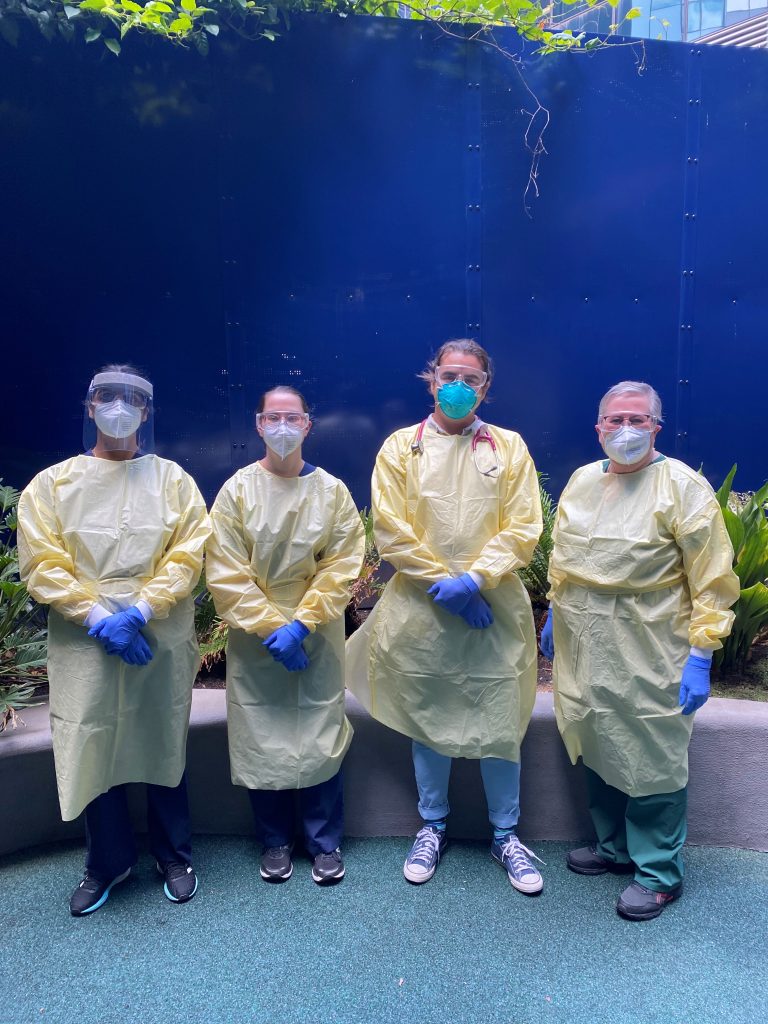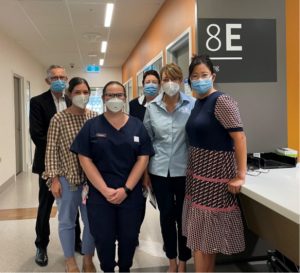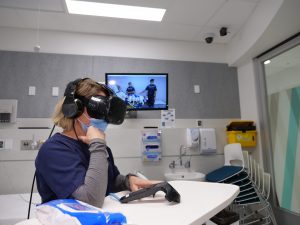For Dr Marcia, CALHN’s mental health Medical Lead, the Omicron outbreak has meant her team has had to adapt the way they work, reacquaint themselves with general medicine techniques, and balance the complex interactions between medications for treating COVID-19 and mental health illnesses.
Since the borders opened the Royal Adelaide Hospital’s mental health clinical program has cared for 19 mental health COVID positive patients.
“It’s been interesting. The team has been fantastic in shifting to quite a different way of working, being in full PPE and everything else that goes with looking after COVID positive people,” Dr Marcia said.
“We’ve had to learn lots of things, we’ve all worked in mental health for a long time so it’s a long time since we’ve done general medicine type things.
“We’ve all learnt how to use a stethoscope again and listening to people’s chests, we’re really increasing our knowledge base which is good.”
According to Dr Marcia, COVID-19 has created some challenges with the medication the mental health team uses to treat psychiatric illness.
“A lot of the medications we use to try and reduce acute psychosis can be quite sedating, but you don’t want to sedate someone who has COVID,” Dr Marcia said.
“One of our main anti-psychotics has peculiar affects with the COVID virus and it’s got to be managed very carefully.
“We’ve had five patients where we’ve had to do some tricky drug titrations to manage this.”
Dr Marcia said medications that are used to treat COVID-19 can also make mental illness worse so the team has had to balance finding the right treatments for both COVID and mental illness.
With physical distancing a crucial part of managing COVID-19, the mental health team has also changed the way they interact with patients.
“One of the things we ask our patients each day is how the staff are treating them and patients have been universally praising the nurses looking after them,” Dr Marcia said.
“Our allied health team have been very clever and made-up packs of stuff for people to do and they now have a virtual group meeting, called the coffee club, twice a day if patients want it.
“When [patients] are in the stages of COVID when they’re feeling lethargic and achy, they just want to stay in bed but as they get better and their COVID symptoms get better they really appreciate that interaction, even if it’s virtual.”
Dr Marcia said people with chronic mental illness are less likely to be vaccinated and are more often smokers which puts them more at risk with COVID-19.
The team has also had a lot of collaboration with general physicians and infectious disease experts whenever they’ve been concerned, making it a whole of CALHN effort.
Pictured: Kirandeep, Tamara, Hamish, Dr Marcia Fogarty from CALHN’s mental health team.



